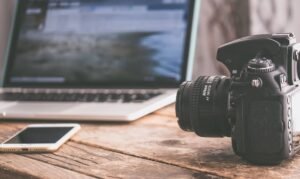What Is Journalist Questions?
Journalist questions, also known as the Five Ws and One H, are a set of fundamental questions that journalists use to gather essential information for their news stories. By asking these questions, journalists aim to provide their readers or viewers with a comprehensive understanding of a topic or event. The Five Ws stand for Who, What, Where, When, and Why, while the One H represents How.
Key Takeaways
- Journalist questions, also called the Five Ws and One H, are essential for gathering information for news stories.
- The Five Ws are Who, What, Where, When, and Why, while the One H represents How.
- Asking these questions helps provide a comprehensive understanding of a topic or event.
The Five Ws and One H
The first component of journalist questions is the Five Ws:
- Who: This question seeks to identify the individuals, groups, or organizations involved in the story. It is crucial to understanding the people impacted by or responsible for the event.
- What: Journalists ask this question to gather information about the topic or event being reported. It helps provide context and details about the subject matter.
- Where: Knowing the location of an event or incident is crucial in reporting accurate information. Journalists identify the specific place or area where the story occurred.
- When: This question looks at the timing of an event, including the date, time, and duration. It helps establish the chronology of the story.
- Why: Understanding the motivations, causes, or reasons behind an event or action enables journalists to provide deeper analysis and insight to their audience.
Additionally, the One H focuses on the process or methodology:
- How: By asking how an event happened or a situation unfolded, journalists can provide a clearer understanding of the processes, mechanisms, or actions involved.
Journalists rely on the Five Ws and One H to gather essential details and provide a comprehensive view of a story.
Examples of Journalist Questions in Action
To illustrate the practical application of journalist questions, consider the following example:
| Question | Example |
|---|---|
| Who | Who are the primary stakeholders in the new education policy? |
| What | What changes does the policy propose for the current education system? |
| Where | Where did the government announce the new policy? |
| When | When will the changes take effect? |
| Why | Why did the government decide to introduce this policy? |
| How | How will the policy be implemented and enforced? |
These examples demonstrate how journalist questions can help answer crucial inquiries and provide a comprehensive overview of a news story.
Benefits of Journalist Questions
Journalist questions offer several benefits for both journalists and their audience:
- Clarity: By addressing the Who, What, Where, When, Why, and How, journalists provide a clear, well-rounded view of a story.
- Perspective: Understanding the motivations and causes drives deeper analysis and offers greater perspective on an event or issue.
- Accuracy: By covering essential aspects, journalists can report accurate and verified information.
- Completeness: Addressing all the key questions ensures a comprehensive understanding of the topic.
Using journalist questions has proven to enhance journalism by improving clarity, perspective, accuracy, and completeness of news stories.
Conclusion
Journalist questions, also known as the Five Ws and One H, form the foundation of effective reporting by addressing crucial aspects of a story. By asking Who, What, Where, When, Why, and How, journalists ensure that their audience receives accurate, comprehensive, and well-rounded news stories.

Common Misconceptions
What is Journalist Questions?
Journalist questions refer to the types of questions that journalists ask when conducting interviews or gathering information for a news story. There are several misconceptions surrounding this topic that can lead to misunderstandings about the role of journalists and their interviewing techniques.
- Journalist questions are always aggressive and confrontational.
- Journalists only focus on controversial or negative aspects of a story.
- Journalist questions are meant to trick or trap interviewees.
Journalist Questions are Always Aggressive and Confrontational
One common misconception is that journalist questions are always aggressive and confrontational in nature. While it is true that journalists may ask tough questions to hold individuals accountable, not all journalist questions are designed to provoke conflict. Journalists aim to elicit truthful and informative responses that provide clarity on the subject being discussed.
- Journalists also ask open-ended and probing questions to gain a deeper understanding.
- Journalists may use a friendly approach to build rapport and encourage interviewees to share more.
- The tone and style of journalist questions can vary depending on the context and subject matter.
Journalists Only Focus on Controversial or Negative Aspects of a Story
Another misconception is that journalists solely focus on controversial or negative aspects of a story. While the media does have a tendency to highlight sensational news, journalists are trained to provide a balanced and comprehensive view of events. They strive to present multiple perspectives and delve into different aspects surrounding a topic.
- Journalists also cover positive news stories and human interest pieces.
- They seek to give voice to underrepresented groups and shed light on important social issues.
- Journalists aim to provide accurate and unbiased information rather than solely focusing on negativity.
Journalist Questions are Meant to Trick or Trap Interviewees
There is a prevailing notion that journalist questions are designed to trick or trap interviewees into providing controversial or damaging statements. While journalists may employ probing questions to extract more information, their main goal is to uncover the truth and ensure the accuracy of the news being reported.
- Journalists primarily seek to hold individuals accountable for their actions or decisions.
- They may ask challenging questions to seek clarification or verify facts.
- Journalists are bound by ethical guidelines and responsible for presenting accurate information.

Introduction:
Journalist questions play a critical role in gathering accurate and relevant information for news articles. These questions enable journalists to uncover the truth, present different perspectives, and provide a more comprehensive understanding of events, issues, and people. In this article, we will explore various journalist questions and their significance in the field of journalism.
1. Historical Examples:
In this table, we examine historical examples of journalist questions that have had a significant impact on society, such as Woodward and Bernstein’s Watergate probe or Nellie Bly’s undercover expose on mental health institutions.
2. Types of Journalist Questions:
This table categorizes different types of journalist questions used to acquire essential information, including direct questions, follow-up questions, probing questions, hypothetical questions, and open-ended questions.
3. Investigative Journalism:
Here, we feature some investigative journalist questions used to uncover hidden truths, expose scandals, and hold powerful individuals or institutions accountable for their actions.
4. Ethical Considerations:
This table outlines ethical considerations that journalists must adhere to when formulating questions, such as respecting privacy, avoiding assumptions, and being aware of sensitivity surrounding certain topics.
5. Interview Skills:
In this table, we highlight key interview skills that journalists employ to elicit valuable information from their sources, including active listening, building rapport, maintaining objectivity, and adapting to different interviewee styles.
6. Press Conference Questions:
Here, we explore the craft of asking questions in press conferences by analyzing notable instances where journalists effectively challenged public figures, prompting them to address pressing issues or controversies.
7. Fact-Checking Questions:
This table presents fact-checking questions that journalists employ to verify the accuracy of information presented to them, ensuring reliable reporting and countering misinformation.
8. Crisis Reporting:
In this table, we illustrate how journalists navigate challenging environments by asking critical questions during crisis reporting, which often involves assessing risks, verifying sources, and maintaining safety.
9. Interviewing Techniques:
This table showcases various interviewing techniques that journalists use to obtain valuable insights, such as asking for personal anecdotes, seeking expert opinions, and utilizing silence strategically.
10. Impact of Journalist Questions:
This final table showcases the significant impact that journalist questions can have on society, media coverage, and public opinion, ranging from uncovering corruption to initiating policy changes.
Conclusion:
Journalist questions are the backbone of responsible reporting, enabling journalists to uncover truth, expose societal issues, and provide information that is vital for a functioning democracy. By asking the right questions, journalists have the power to inform and engage the public, making a profound impact on the world we live in.
Frequently Asked Questions
What Is Journalist Questions?
Questions
What is the role of a journalist?
What skills does a journalist need?
How does a journalist conduct interviews?
What is the importance of objectivity in journalism?
What ethical considerations do journalists have to follow?
What are the different types of journalism?
How has digital technology impacted journalism?
Why is journalism important for democracy?
Can anyone become a journalist?
How can I keep up with the latest news as a journalist?




